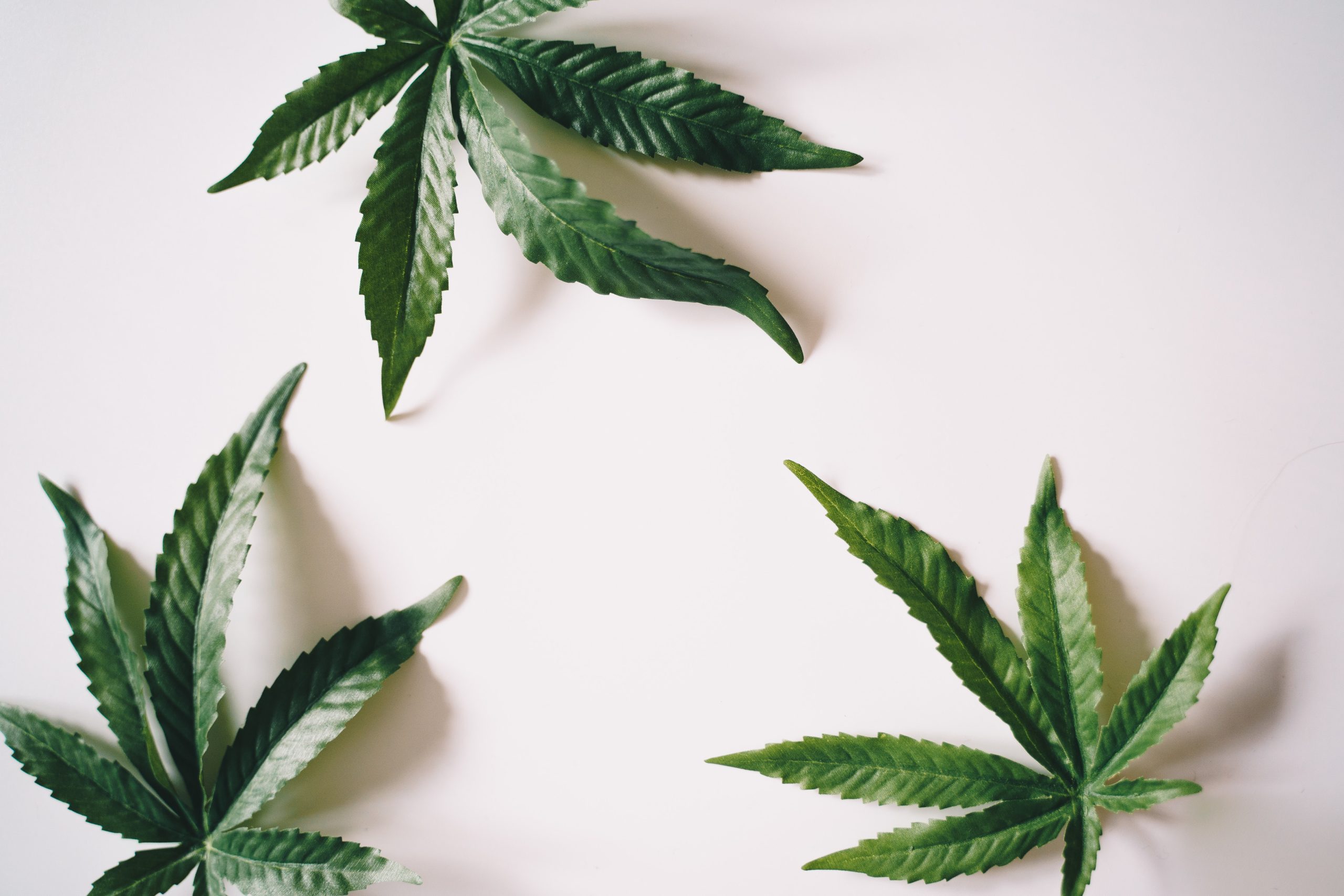Your cart is currently empty!
April 24th, 2023

It’s not surprising to see tons of people turn to cannabis when addressing their mental health. After all, cannabis has been a widely used plant for thousands of years, largely because of its positive effects on mood, not to mention a host of other common unwanted symptoms.
Cannabis refers to a plant genus that includes hemp and marijuana. While the latter is famously intoxicating, the former is not, and can be just as useful when it comes to addressing mental health in particular. Let’s take a closer look at what the compounds in both hemp and marijuana can do for a variety of mental health-related needs, so that you have an idea as to which products on the market may be best for you, specifically, and to also have an idea of how to use certain cannabis compounds to the best of your advantage.
The reality is that 1 in 5 Americans has a mental health disorder, yet an alarming number of people are not getting treatment, or even talking about their symptoms and feelings with others. The fact remains that mental health disorders are still very stigmatized in our society, which only impedes treatment, and the potential to live a healthier, happier, and more fulfilling life.
There are two mental health disorders in particular that are incredibly common: depression and anxiety. Each classified within the broader space of mental health as “mood disorders”, they’re both potentially debilitating to a person’s ability to thrive.
Estimation: 280 million people around the world have a depression-related disorder, and those symptoms include:
Like all disorders, depression symptoms can range from mild to severe, and can be episodic or persistent. A person may experience depression for a single short period of their life, or in fact, may have chronic depression.
Now, let’s take a look at some of the most common depression subtypes.
Anxiety is a mood disorder affecting about 25% of the population, either as a lifelong, chronic condition, or as intermittent episodes throughout a person’s life. Symptoms of anxiety include:
These symptoms can appear persistently or intermittently, depending on the person, and do have the potential to be enormously disruptive to a person’s daily functionality. Frequent anxiety can leave a person exhausted, and unable to focus or find the motivation to thrive. Meanwhile, an overactive nervous system can cause physiological changes in the body, resulting in issues related to immunity, digestion, and more.
Now, let’s take a look at the most common anxiety subtypes.
Let’s cover some other relatively common mental health disorders that affect many people around the world.
At the end of the day, the large majority of people who have a mental health disorder can experience some level of relief from their symptoms, and most can be treated in a way that allows them to live a healthier, more fulfilling, and more productive life. Let’s take a look at the most common treatments for mental health disorders like the ones above.
Psychotherapy involves a variety of therapy modalities. These include:
There are a number of psychiatric medications that can be incredibly effective at minimizing or eliminating certain symptoms of mental health disorders. If you feel that medication is the best course of action for you, speak to your doctor about getting referred to a psychiatrist.
Mindfulness refers to the practice of bringing awareness to the present moment, without evaluating or judging one’s thoughts or observations. Meditation is the most common mindfulness practice. Mindfulness can offer concrete benefits to the nervous system, and even improve the function of the brain to benefit mood, feelings, and behavior.
Since the beginning of time, many people have used herbs and other plants to find relief from mental health symptoms.
Like we just mentioned, cannabis has been used for mental health for thousands of years, but only in the last few decades have we really understood why they work. Cannabinoids are compounds unique to cannabis, and include CBD, delta 9 THC, delta 8 THC, THC-P, THCV, and others. Cannabinoids are distinctive in that they are the only compounds capable of attaching themselves to cannabinoid receptors in the body, which belong to the endocannabinoid system (ECS).
The endocannabinoid system is a system of the body that consists of this complex network of cannabinoid receptors. With the goal of bringing the body into homeostasis, the ECS sends cannabinoids like the ones above to these cannabinoid receptors, to produce a chemical reaction that allows physiological processes to become regulated, to bring systems of the body into equilibrium.
CB1 receptors are cannabinoid receptors in the brain, which can regulate cognitive function, pain tolerance, appetite, and a host of brain functions. Today, however, we’re focusing on how CB1 receptors have a critical part in our mental health, regulating functions directly related to mental health like mood, cognitive behaviors, etc.
A good amount of research has gone into the role that cannabinoids can play in addressing mental health – in particular, mood disorders, as you’re about to see.
Perhaps the most understood relationship between cannabis and mental health revolves around anxiety. There’s just an undeniable amount of research that has shown concrete improvements in anxiety sufferers who were administered cannabis, and specific cannabinoids in particular.
CBD, aka cannabidiol, is the dominant cannabinoid in the hemp plant, and a cannabinoid that is nonintoxicating. A large number of studies have shown that CBD is effective for those with a wide range of anxiety disorders, including generalized anxiety disorder, panic disorder, and social anxiety, as well as post-traumatic stress disorder. The anxiolytic effects of CBD work with functions of the nervous system that are involved in anxiety, and our body’s overall stress response, which is why so many people swear by the cannabinoid when they are looking to mellow out.
CBD has also been associated with positive effects on sleep. The cannabinoid regulates neurotransmitters directly related to the body’s sleep response, like serotonin, cortisol, and melatonin. Insomnia is a common symptom of anxiety, as the nervous system is in an elevated state so frequently that it’s difficult to relax at nighttime. At the same time, lack of sleep can and does make anxiety symptoms worse, causing a vicious cycle. CBD may be able to provide relief.
Delta 9 THC (delta-9 tetrahydrocannabinol), meanwhile, is the dominant cannabinoid in marijuana, and is, in fact, intoxicating. THC is psychoactive because it attaches to specific cannabinoid receptors that induce intoxication, which means that unlike CBD, THC will get you high – something to consider if you have a strong preference one way or the other.
Delta 9, like CBD, has been shown in studies to reduce anxiety symptoms. At the same time, the high itself can be anxiolytic, as it causes temporary cerebral effects which can induce intense relaxation. Other forms of THC have been found to have this effect as well, including delta 8 THC, with its high that’s 30% milder than delta 9 THC, and well-known soothing nature.
Keep in mind that if you’re going to go with a psychoactive cannabinoid for anxiety relief, there may be a paradoxical effect if you take too much, have a naturally low THC tolerance, or are new to the cannabinoid. People do report feelings of anxiety and paranoia when they’re too high, which is a short-lived effect, but one you should be mindful of.
Cannabis also clearly offers antidepressant properties, although this area of research is surprisingly limited compared to the plant’s effects on anxiety. Still, studies do show that cannabinoids can work with neurotransmitters that are dysregulated in depression sufferers, while the high of intoxicating cannabinoids can be euphoric, offering powerful, temporary relief on top of its more regulatory effects on mood-related hormones. In particular, CBD, delta 9 THC, and delta 8 THC have been shown to deliver concrete antidepressant qualities.
An impressive study found that cannabis may alleviate symptoms related to obsessive-compulsive disorder. When OCD patients were administered cannabis, they engaged in fewer compulsive behaviors, and were less distressed by obsessive/intrusive thoughts. It’s believed that the cannabinoids in cannabis – primarily THC – have a regulatory effect on neural pathways that are overactive in OCD patients.
There is a lot of debate as to whether or not THC is advisable for those who have schizophrenia. The psychoactive properties of THC may, according to some studies, exacerbate psychosis. But, CBD, which again is nonintoxicating, has been found by researchers to offer regulatory effects on cognition, which may actually minimize schizophrenia symptoms, rather than exacerbate them.
Research has confirmed that the cannabinoids in cannabis offer clear, demonstrable effects on our mental health, by regulating a wide variety of brain and nervous system functions. So, with that being said, we can conclude that cannabis is something that should be explored more, as we open up the conversation about mental health. Keep in mind, too, that not all cannabis derivatives that show potential benefits are psychoactive – CBD is one of several nonintoxicating cannabinoids that seems to show impressive capabilities when it comes to providing relief from a wide range of mental health symptoms.
Just be sure that if you are on any psychiatric medications, that you speak with your doctor before working cannabis into your routine, to avoid any potential interaction. Some medications are broken down by CYP3A4, an enzyme that can be suppressed by cannabis use.
If you’d like to explore cannabis for mental health, we invite you to take a look at the products at GreenLife Remedies, as you’ll find a large variety of cannabinoids, formulations, strains, milligram strengths and more. Our formulas are lab-tested, and our customers swear by them thanks to their impact on mood, cognitive function, and more.




How would you like to shop?